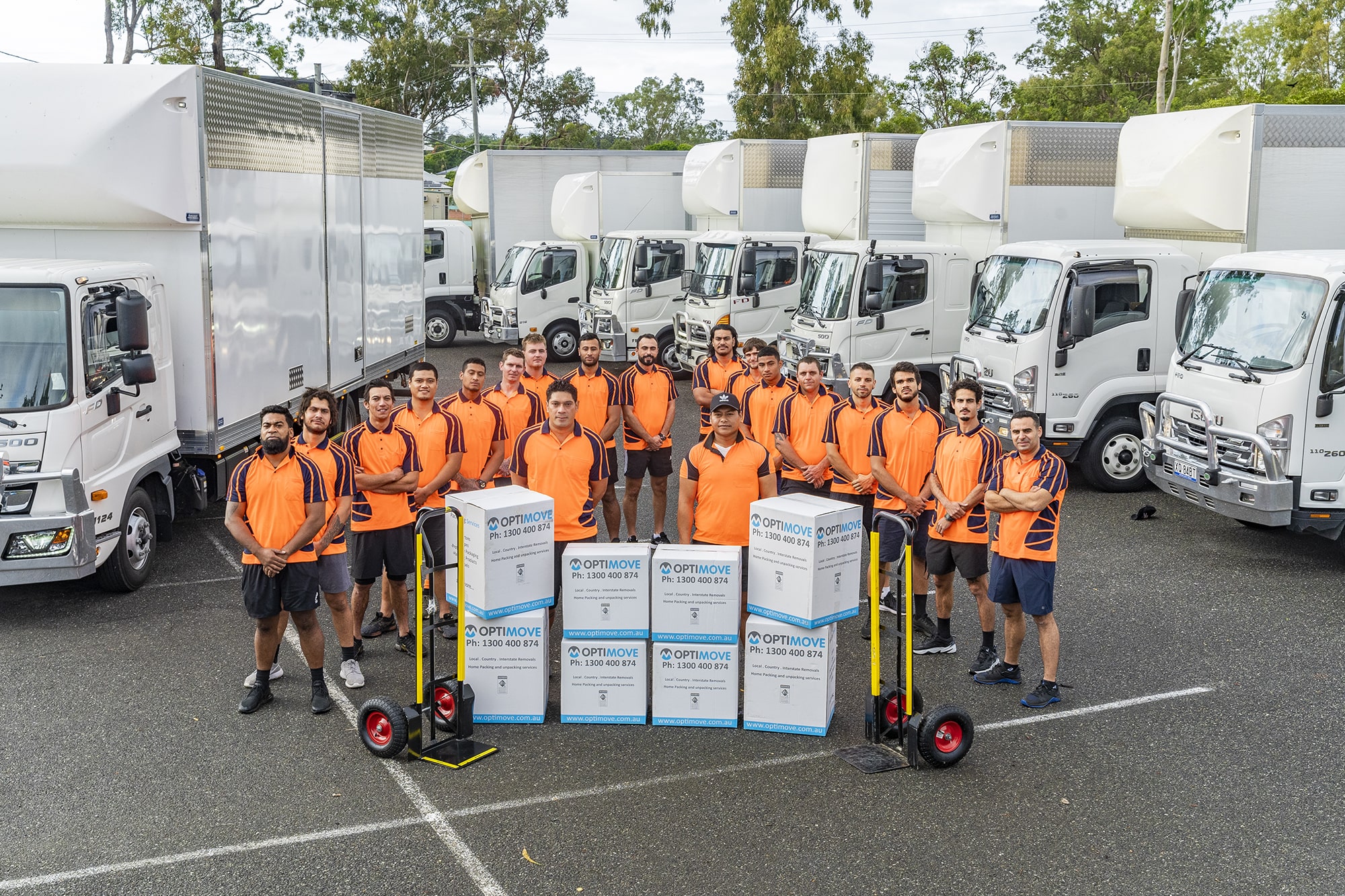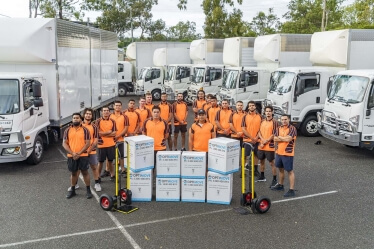Eco-Friendly and Sustainable Moving Practices
Moving to a new home or office is an opportunity to embrace eco-friendly and sustainable practices that minimise your environmental impact. By adopting sustainable moving practices, you can reduce waste, conserve resources, and contribute to a greener future. Here, we will provide expanded tips and actionable steps to help you make your move more eco-friendly and sustainable, ensuring a responsible and environmentally conscious relocation.
Declutter and Donate Responsibly
Before packing, declutter your belongings and donate or recycle items you no longer need. Sort your possessions and separate items to donate to local charities or community organisations. Giving these items a second life reduces waste and contributes to a circular economy. Ensure that the things you donate are in good condition and can be used by others.
Opt for Eco-Friendly Packing Materials
When packing your belongings, choose eco-friendly alternatives to traditional packing materials. Instead of plastic bubble wrap, use recyclable packing paper, biodegradable packing peanuts made from renewable resources, or reusable packing blankets. You can also use towels, blankets, and clothing to cushion and protect fragile items. These eco-friendly options reduce waste and minimise your environmental footprint.
Rent Reusable Moving Boxes
Consider renting reusable plastic moving boxes instead of disposable cardboard boxes. Many companies offer eco-friendly options for moving boxes that can be reused multiple times. These plastic boxes are durable and stackable, and eliminate the need for wasteful single-use cardboard boxes. Rentable moving boxes and reusable boxes are a better option since you will only be using them during the move. Since not all free-moving boxes are durable, renting some from green moving companies that promote sustainable packing materials may be wiser.
Plan a Sustainable Transportation Strategy
When planning your move, consider sustainable transportation options to minimise carbon emissions. If feasible, opt for hybrid or electric vehicles to transport your belongings. Alternatively, explore opportunities for shared transportation, such as consolidating your move with others in your area or utilising eco-friendly moving companies that prioritise fuel-efficient trucks. By reducing carbon emissions, you contribute to a cleaner and healthier environment.
Dispose of Hazardous Materials Properly
Dispose of hazardous materials responsibly, such as batteries, paints, or cleaning chemicals. These items should not be thrown in regular trash bins or dumped in landfills, as they can harm the environment and human health. Research local hazardous waste disposal centres or recycling programs that accept these materials. You can also ask the green moving company you have hired to help with proper disposal. By ensuring their proper disposal, you prevent pollution and protect the environment.
Use Energy-Efficient Packaging and Appliances
When purchasing new packaging materials or appliances for your new location, prioritise energy efficiency. Look for packaging made from recycled or renewable materials. Choose machines with high ENERGY STAR ratings that meet energy efficiency standards. Energy-efficient appliances reduce your carbon footprint, save energy, and lower utility bills in the long run.
Minimise Paper Usage
During the moving process, aim to minimise paper usage. Embrace digital alternatives for documentation, such as electronic signatures, online storage systems, and cloud-based collaboration tools. By reducing paper usage, you conserve valuable resources and reduce waste. If you must use paper, choose recycled or sustainably sourced paper products.
Support Local and Sustainable Businesses
When selecting service providers for your move, support local stores and sustainable businesses. Look for moving companies that implement eco-friendly practices, such as recycling initiatives, fuel-efficient fleets, and biodegradable packing supplies, and are committed to reducing their carbon footprint. Also, choose suppliers and contractors who prioritise sustainability and responsibly source their materials. Supporting local and sustainable businesses contributes to a greener economy and encourages others to adopt eco-friendly practices.
Offset Your Carbon Emissions
Consider offsetting the carbon emissions associated with your move by investing in verified carbon offset programs. These programs support projects that reduce greenhouse gas emissions, such as renewable energy projects or reforestation initiatives. Calculate the carbon emissions generated by your move and purchase carbon offsets to neutralise your impact. By offsetting carbon emissions, you support climate action and contribute to a more sustainable future.
Choose Energy-Efficient Lighting
When setting up your new space, opt for energy-efficient lighting solutions. Replace traditional incandescent bulbs with energy-saving LED bulbs. LED bulbs consume significantly less energy and have a longer lifespan, reducing both your energy consumption and the frequency of bulb replacements. Additionally, consider utilising natural light by positioning workstations near windows to maximise daylight and minimise the need for artificial lighting during the day.
Set Up a Recycling Station
Designate a dedicated recycling area in your new space. Set up labelled recycling bins for paper, plastic, glass, and other recyclable materials. Educate employees or family members on recycling, including rinsing containers and removing non-recyclable components. By making recycling convenient and accessible, you promote a culture of sustainability within your new environment.
Minimise Food Waste
If your move involves perishable food items, make a conscious effort to minimise food waste. Plan your meals and consume perishable items before the move to avoid unnecessary waste. Consider donating excess non-perishable food items to local food banks or community organisations. Be mindful of food waste throughout the moving process and strive to reduce it by utilising leftovers creatively or composting organic waste.
Choose Eco-Friendly Cleaning Products:
When cleaning your old and new spaces, opt for eco-friendly, non-toxic, biodegradable cleaning products. Many conventional cleaning products contain harmful chemicals that can harm the environment and human health. Look for eco-certified cleaning products or use natural ingredients like vinegar, baking soda, and lemon juice. Choosing eco-friendly cleaning products creates a healthier indoor environment and reduces water pollution.
Encourage Sustainable Commuting:
If you’re relocating an office, encourage sustainable commuting options among your employees. Promote carpooling, public transportation, biking, or walking as alternatives to single-occupancy vehicle commuting. Provide incentives for sustainable commuting, such as preferred parking for carpoolers or access to bike storage facilities. By encouraging sustainable commuting, you reduce traffic congestion, carbon emissions, and the environmental impact of daily commuting.
Offset Packing Material Waste:
While minimizing packing material waste is essential, eliminating it may be challenging. In such cases, consider offsetting the environmental impact of your packing materials. Look for recycling programs or initiatives that accept specific packaging materials, such as plastic film or foam. Some companies specialise in recycling or upcycling materials like bubble wrap or foam peanuts. By offsetting the waste generated, you contribute to a circular economy and reduce the overall environmental impact of your move.
Go Paperless with Change of Address Notifications
When notifying friends, family, and service providers of your change of address, opt for digital methods instead of traditional mail. Send email notifications or use online platforms to update your address information. Encourage others to communicate with you electronically rather than sending physical mail. You save resources and reduce paper waste by going paperless with address notifications.
Incorporate Sustainable Interior Design
Consider incorporating sustainable interior design principles as you set up your new space. Choose furniture made from eco-friendly materials such as reclaimed wood or bamboo. Look for products certified by recognised sustainability organisations. Utilise low or zero-VOC (volatile organic compounds) paints and finishes to reduce indoor air pollution. Incorporate energy-efficient appliances and fixtures, as well as water-saving plumbing fixtures, to minimise resource consumption.
Involve Employees or Family Members in Sustainable Practices:
Engage employees or family members in sustainable practices throughout the move. Provide education and resources on sustainable moving and living. Encourage them to adopt eco-friendly habits, such as turning off lights when not in use, using reusable water bottles and coffee cups, and practising mindful consumption. Involving everyone in the sustainability journey creates a collective effort towards a greener lifestyle.
Measure and Track Your Environmental Impact
Consider measuring and tracking your environmental impact throughout the moving process. Calculate your carbon emissions, water consumption, and waste generation. Set goals for reducing these impacts and track your progress. By monitoring and evaluating your sustainability efforts, you can identify areas for improvement and make adjustments for future moves or lifestyle changes.
Spread Awareness and Inspire Others:
Share your eco-friendly moving journey with others and inspire them to adopt sustainable practices. Use social media platforms, blogs, or community forums to share your experiences, tips, and resources. Encourage others to consider their moves’ environmental impact and guide them on how they can make their relocations more sustainable. By spreading awareness and inspiring others, you create a ripple effect that can lead to positive change.
In addition to adopting these sustainable practices, consider the advantages of hiring a professional moving company like Optimove. Optimove is known for its commitment to sustainability and offers eco-friendly moving services. They prioritise fuel-efficient transportation, use reusable packing materials, and provide recycling and donation options for unwanted items. By entrusting your move to Optimove, you can be confident that your relocation aligns with your eco-friendly values.







































